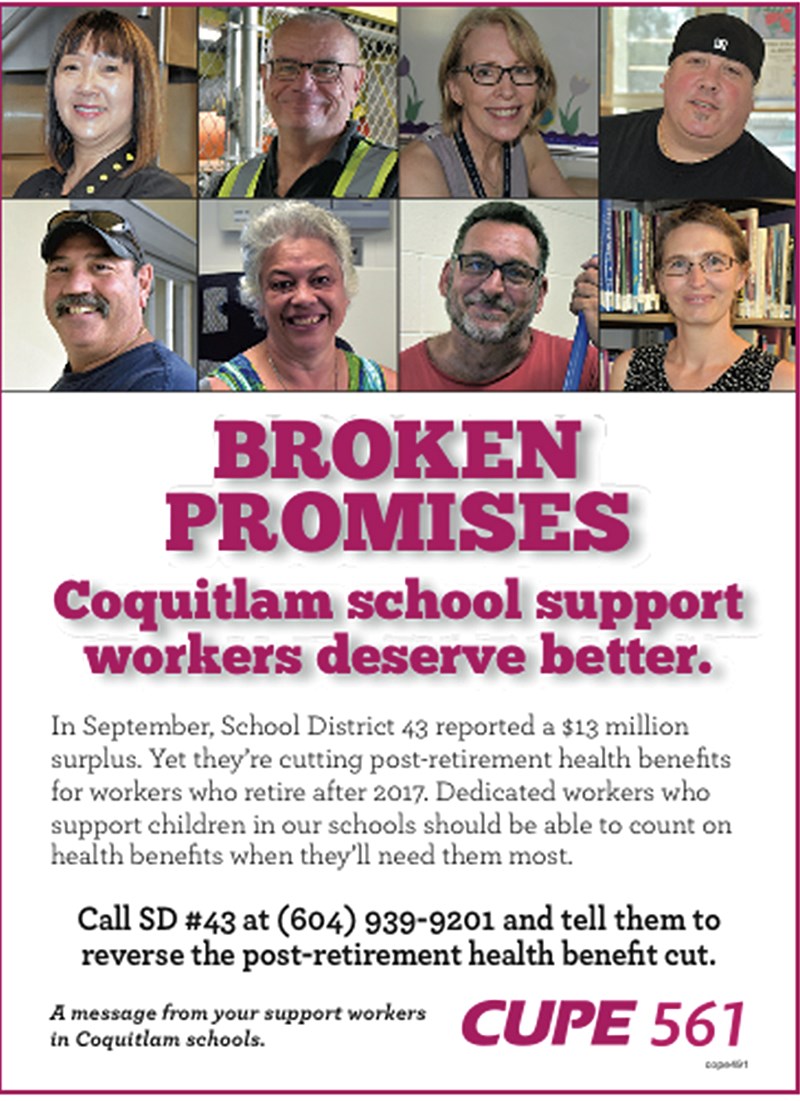School District 43 support workers who plan to retire after Dec. 31 will be losing their post-retirement health and dental benefits but the union that is supporting them is fighting back.
This week, CUPE Local 561 launched an advertising campaign to raise concerns about the loss of a post-retirement health and benefit plan.
And the president of the local says the school district isn’t doing enough to find alternatives, despite the announcement this week by SD43 of two voluntary programs that workers can use.
One of the options is with Pacific Blue Cross and another is with Aon Hewitt; both are individual plans that would not be subsidized.
“It is nowhere near a group plan, it’s an individual plan,” Dave Ginter told The Tri-City News. “I could… phone and I would get the same thing.
“We’re hoping for a group plan because that’s where the savings are,” said Ginter, who noted the district has a surplus and could reverse the planned post retirement health benefit cut.
But SD43 says it needs the savings to pay down a $50-million solvency gap in the pension plan covering CUPE support workers and the post-retiree health and dental plan alternatives offered this week are good, especially for people with pre-existing conditions.
“We either close the health and dental plan for future retirees or we eliminate jobs,” secretary treasure Chris Nicolls told The Tri-City News, “and we’ve decided that the best thing for education services and for employees is to close the health and dental plan.”
Ginter said he is meeting with other providers to find better options and hopes the advertising campaign — called Broken Promises, and published in The Tri-City News and posted in Coquitlam bus shelters — will encourage the board of education to reconsider its choices before the Dec. 31 deadline.
He also criticized the province for not helping the district to deal with its pension solvency issue sooner since the solvency gap was identified more than three years ago.
Efforts to move the workers to the pension plan covering retired municipal workers failed, Ginter said, because only working employees would have been covered, leaving current retirees in their own, less well-funded plan.
Now, he’s working for a last-minute solution, and hopes the ad campaign will help.



